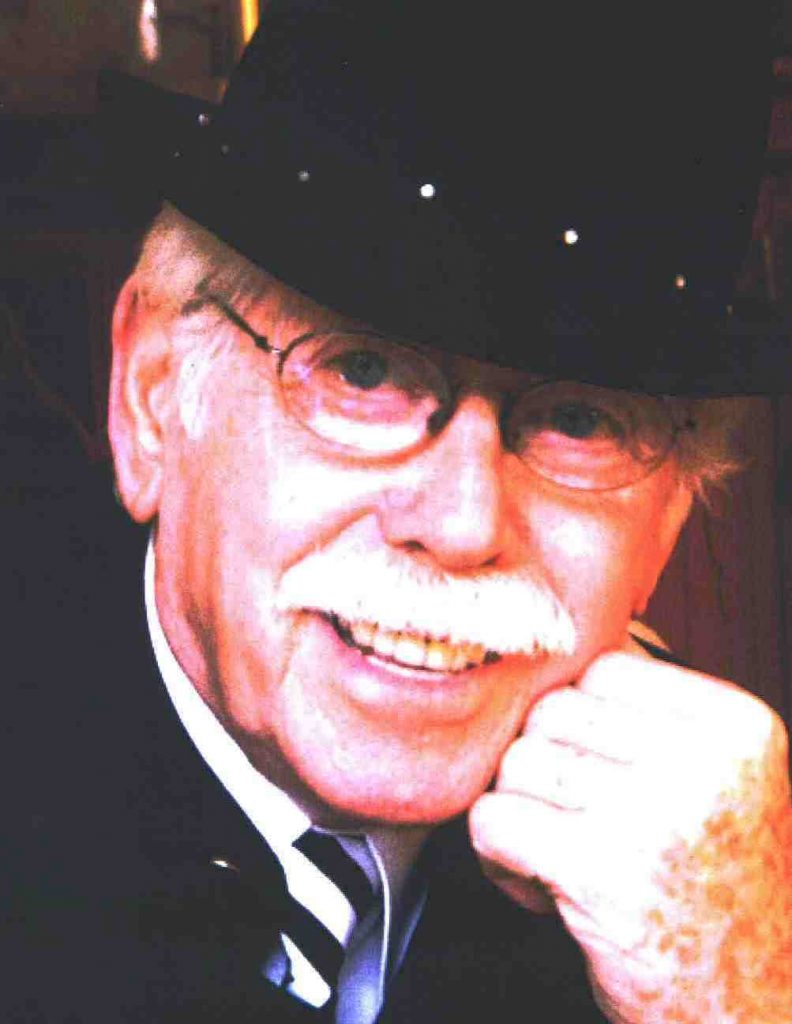Where do you go when you believe you have been failed by the police in their handling of a murder enquiry? This is the story of one family’s decision to complain to the Independent Complaints Commission.
Seventy-nine year-old Teddy Highwood was bludgeoned to death at his home on July 17, 2009. His killer, 20 year-old Marcin Orlowski, was a Polish man with previous convictions for mugging elderly victims.
Four days before the murder Orlowski had dialled 999 and told the operator through an interpreter: ‘I should be in prison in Poland, I think, and now I have decided I don’t want to run away anymore. I just want to be arrested and be extradited to Poland. I should be in prison for about three years.’
Orlowski was telling the truth – he had fled Poland as he was about to start a prison sentence – but UK police were unaware of this and there was no record on the national database.
After two further calls, the response of a police officer was to say: ‘It is a minor offence, when he goes back to Poland he should hand himself in. We cannot help him get back.’
Orlowski was given the number of the Polish Community Helpline and it was suggested he go to the Polish Embassy, but he ended up sleeping rough in Trafalgar Square with a bottle of cider.
The family of Teddy Highwood say this wasn’t good enough. Not only that, they believe Teddy’s murder could have been prevented if the 999 calls had been taken seriously and Orlowski had been detained by police.
In August 2010 Mr Highwood’s great nephew John Morris took up the case with the Independent Police Complaints Commission (IPCC), with the help of his local MP Jackie Doyle-Price.
The process – which ended in the complaint being dismissed earlier this month – has left him feeling let down and disillusioned.
When it was set up by the Home Office in 2004, the IPCC was meant to reassure the public that complaints against the police would be treated seriously.
Instead it has been dogged by allegations of favouritism, given that many of its investigators are former officers, and a catalogue of basic failures. Its current director of investigations, Moir Stewart, was himself criticised for failings in relation to the handling of the shooting of Jean Charles De Menezes. And it has been accused of trying to obstruct journalists investigating the death of Ian Tomlinson at the G20 protests.
As it happens, the IPCC decided not to investigate the Teddy Highwood complaint itself and passed it to the Directorate of Professional Standards (DPS) for a ‘Local Investigation.’ The DPS, which also investigates police corruption, is part of the Metropolitan Police.
“The people who investigated this were the police themselves,” says Mr Morris. “It’s absolutely ridiculous that they investigate their own incompetence.”
According to the DPS report, Orlowski ‘appeared incoherent and rambling’ when he dialled 999 on July 13, 2009, and a check by officers revealed no information about him on the Police National Computer.
It continues: ‘Having established that Mr Orlowski was not in danger or posed any risk, he was then advised not to use the emergency 999 system for this purpose again. It should be noted that Mr Orlowski made no reference to Mr Highwood and made no threats to police.’
As to why he was not detained by police, there was ‘insufficient capacity to despatch operation police units to this type of call’.
It also appears that UK police have no power to arrest suspects for offences committed abroad unless there is a European Arrest Warrant.
In conclusion: ‘It is unlikely that Mr Highwood’s death could have been prevented by alternative action being carried out… Mr Orlowski could not have been detained.’
John Morris is quite blunt about his disappointment. “They think it’s good enough – they didn’t take it seriously.
“He’s actually asked for help. They would have took this guy and held him, then rung the Polish authorities. If they had done that then Teddy wouldn’t have been murdered.”
In fairness to the police, they do set out a series of recommendatons (usually known as ‘lessons to be learned’) including risk assessment training for 999 operators and further improvement to the ‘European data system’.
But the public might be surprised that a man wanted in Poland could enter the UK so easily, just because no European Arrest Warrant had been issued by the Polish authorities.
Even the Met admits ‘it is of significant concern to this organisation that EU nationals may be unlawfully at large in the UK.’
John Morris now intends to campaign for tougher border controls, including criminal checks.
He said: “Someone could be a murderer and we know nothing about their background. Letting people in to a country without simple checks is wrong.”
Mr Morris added: “It’s not about money. Teddy was a pillar of the community and he did a lot of charity work. I told the police ‘We feel you made an error and we would like you do make a donation to the charities that Teddy worked for.’ They weren’t happy about that.”
